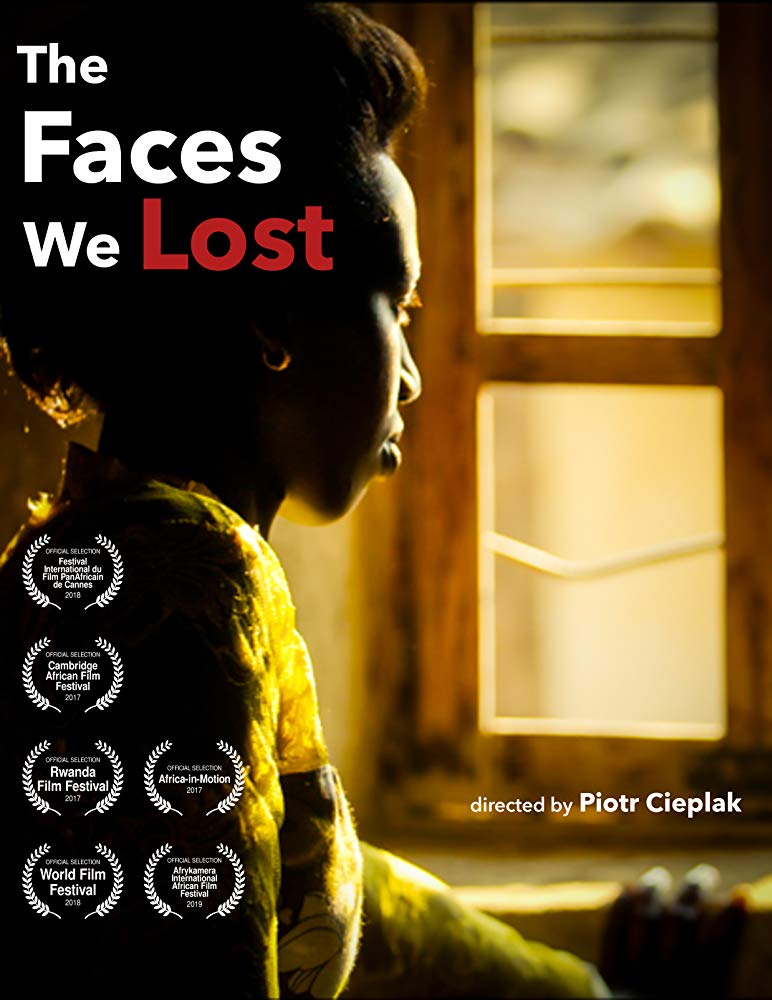Film Screening: ‘The Faces We Lost’: A Memorial Landscape of Contemporary Rwanda
Notes & Changes
Please note the venue change for this week's event only! A light sandwich lunch will be served before the screening.

Abstract
The 1994 genocide in Rwanda claimed almost a million lives in just 100 days. The world stood by as men, women and children were being hacked to death by machetes. When the international community finally decided it was time to pay attention, it did so through memorable photographs of mutilated bodies and seas of nameless refugees. But many Rwandans remember their loved ones through images of life, not death: a passport or I.D. card photo, an unguarded snap taken in the garden or a group portrait from a wedding or a baptism. The surviving images are precious objects, with so many destroyed and lost forever. A lot of people have only a solitary image of their loved ones. Many have none at all.
The Faces We Lost follows nine Rwandans (survivors, relatives of victims and professional memory-makers), who guide us through their stories and share their experiences, remembrance and images. It is the first documentary to explore the many functions of these priceless photographs, and one of the few films to engage with Rwandans as users of images, rather than simply their subjects.
These deeply personal stories are all marked by the terrible experience the genocide and its legacy have left on their owners. Each is unique to the person who tells it. But The Faces We Lost also explores the professional aspect of memory-making in Rwanda: The Genocide Archive (which holds thousands of original images donated by the victims’ relatives) and the Kigali Genocide Memorial (where many of the photographs are on public display). As the private and the public meet and as each person recounts their relationship with the photographs they have or they wish they had, The Faces We Lost moves to paint a complex memorial landscape of contemporary Rwanda.
Bio
Dr Piotr Cieplak is an award-winning filmmaker, writer and academic. He obtained his PhD from the University of Cambridge and, prior to joining Sussex in 2017, held positions at SOAS, Africa Research Institute and Brunel University London.
Piotr’s work combines academic research and creative practice and is concerned with the interaction between memory and the still and moving image, especially in the context of the depiction of genocide, political violence, mourning and individual and collective trauma in film and professional and amateur photography. His focus is primarily, but not exclusively, on Africa and South America. Piotr’s research also touches on the politics of representation when it comes to portrayals of non-Western conflict, victimhood and violence, and issues of voyeurism, permission, transgression, witnessing and perspective.
Piotr has written extensively about image-based representation of the 1994 genocide in Rwanda, including one of the few monographs on the topic: Death, Image, Memory: The Genocide in Rwanda and Its Aftermath in Photography and Documentary Film (Palgrave, 2017).
Piotr’s films and visual essays have won awards and screened widely at international film festivals, and on TV. His most recent film, The Faces We Lost, was nominated for the research film of the year at the 2018 AHRC Research in Film Awards and received the runner-up prize in the research film category from the British Association of Film, TV and Screen Studies.
Piotr’s work has been supported by research grants from the Arts and Humanities Research Council, the British Academy and Leverhulme Trust, Brunel University London and St John’s College, University of Cambridge. Between 2016 and 2017, Piotr was the principal investigator on a British Academy funded project: 'Personal archives of trauma and violence: image and memory in the digital age - Argentina and Rwanda.’ In 2018, Piotr received the British Academy’s Rising Star Engagement Award for a project entitled: ‘Public deaths, private archives: image-based commemoration and remembrance in Rwanda and the Global South.’

